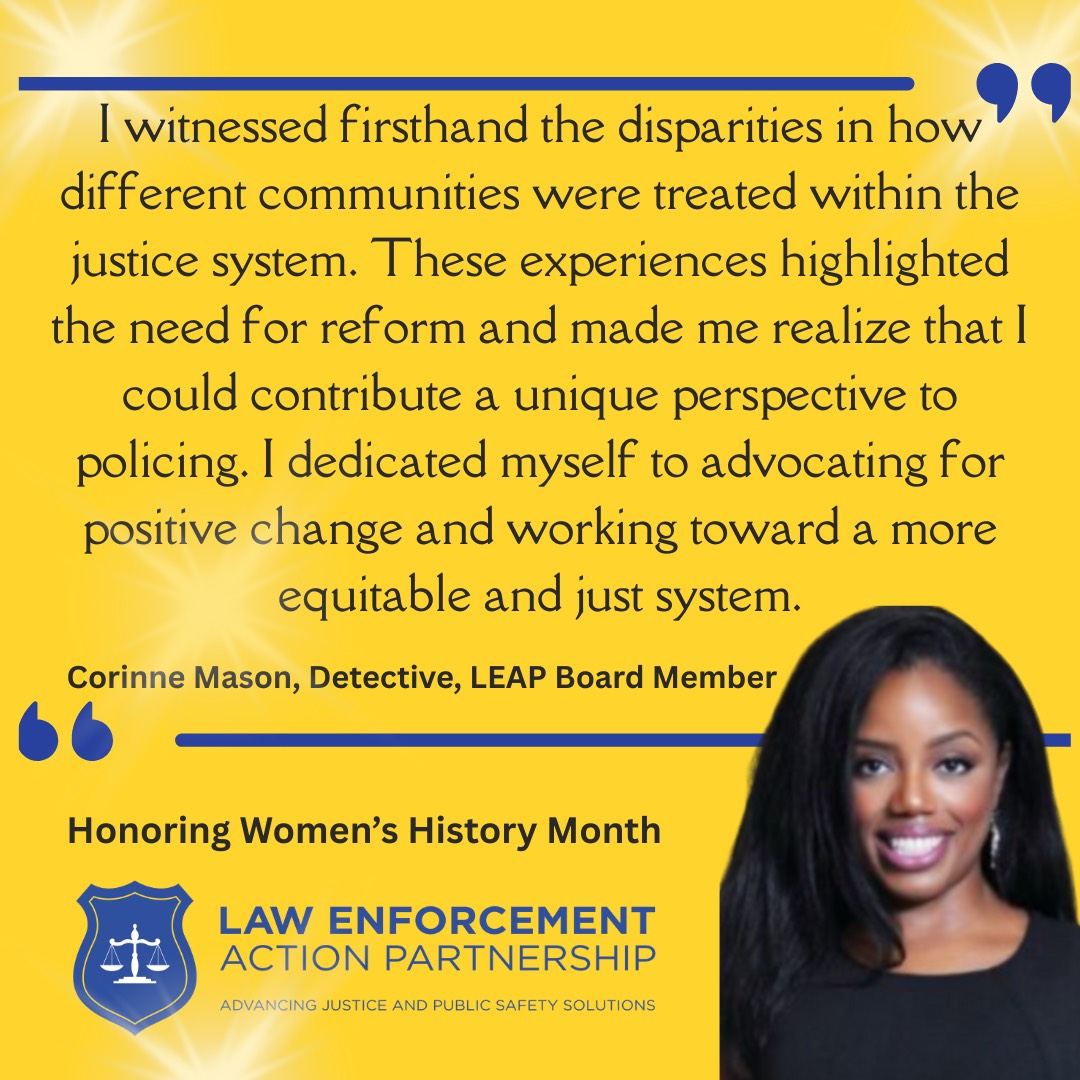|
Honoring Women Advancing Justice Through Experience and Action |
Dear John,
As Women’s History Month draws to a close, we’re taking a moment to reflect on the lives of women whose voices, leadership, and legacy have shaped the justice system—and continue to transform it every day. |
Research makes it clear: women in justice work improves outcomes—leading to greater compassion, stronger community trust, and more responsive public safety services. |
You may not recognize all their names—but here are a few of the women who have influenced our justice system in profound ways. What follows is just a snapshot of the groundbreaking contributions of these women whose stories are worth knowing, celebrating, and building upon.
Imagine a world where women were not allowed to pursue careers in law enforcement or criminal justice. How different would our society be today? There would be no: |
Marie Owens, one of the nation’s earliest female police officers, who enforced child labor and welfare laws in the 1890s—and made sure working children had access to education.
Alice Stebbins Wells, the trailblazer who went on to found the International Association of Women Police and traveled the country promoting the idea of hiring more women for law enforcement. She was the first woman with arrest powers in the US.
Burnita Shelton Matthews, reshaped how women engaged with the legal system after becoming the first woman appointed to a federal district court. Matthews helped draft the original Equal Rights Amendment.
Ketanji Brown Jackson, the first Black woman and the first former public defender to serve on the Supreme Court. Jackson served as a commissioner on the Sentencing Commission and retroactively applied the 2010 Fair Sentencing Act, which allowed people with extreme sentences for certain prior drug convictions to seek reduced sentences.
Michelle Alexander, whose groundbreaking work, The New Jim Crow, reframed the conversation around race and mass incarceration.
Freda Adler, a pioneering criminologist who challenged assumptions about gender and crime. Adler served as president of the American Society of Criminology and as a consultant to the UN, helping shape global criminal justice policy.
|
|
|
|
|
And right here at LEAP—Diane Goldstein, our Executive Director, a retired lieutenant and the first woman in her department’s history to achieve that rank within her 21-year law enforcement career. Alongside 55 other remarkable women in LEAP’s speaker’s bureau, her voice exemplifies what it means to turn experience in the system into a catalyst for change.
Without women in the field of criminal justice we would not have the leadership of our five brilliant women board members who continue to guide our mission, strategy, and vision for a safer, more just world.
This Women’s History Month, we invite you to carry these stories forward. Let’s not let their legacies end on the calendar. Let’s honor them by continuing the work they’ve started—centering compassion in justice, building trust, and making our communities safer for everyone.
Make a donation today in honor of the women who made justice their mission. |
Sent by Law Enforcement Action Partnership Inc Unsubscribe from this list
|



